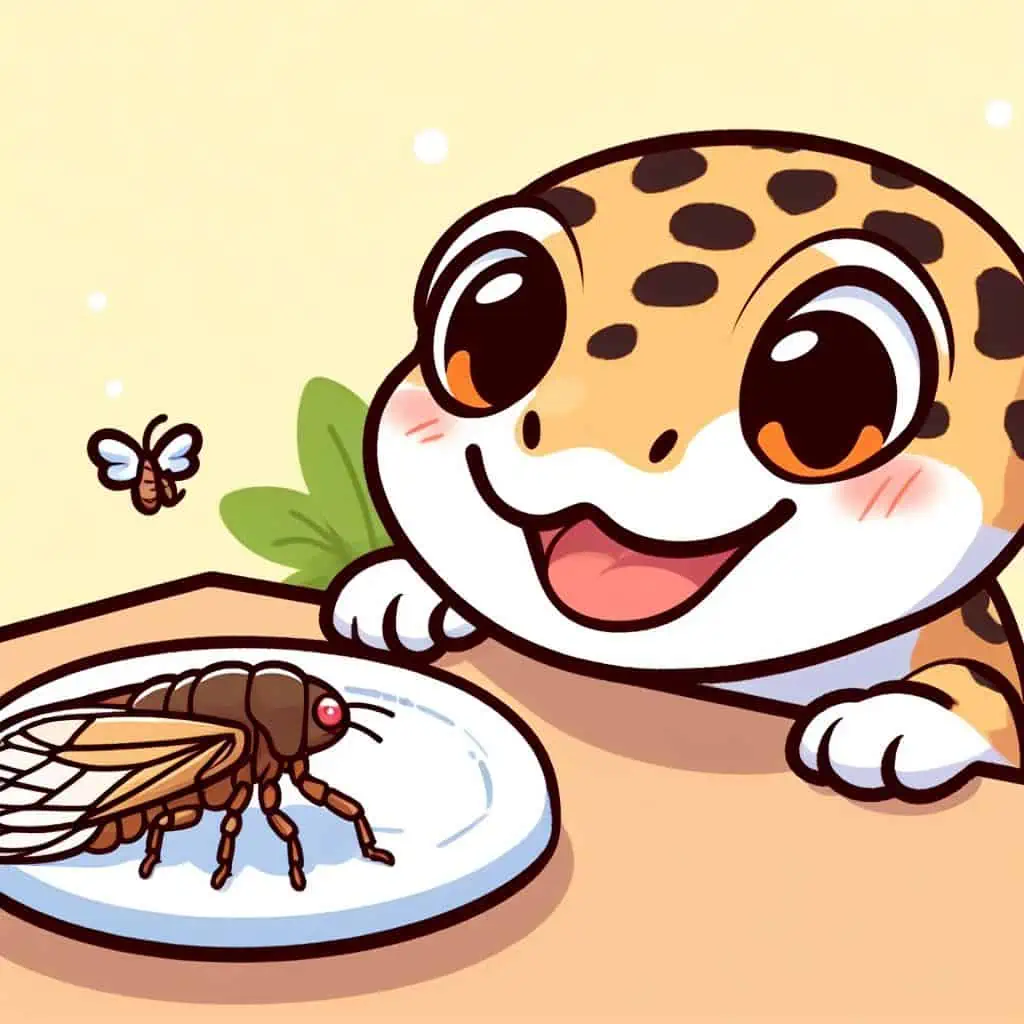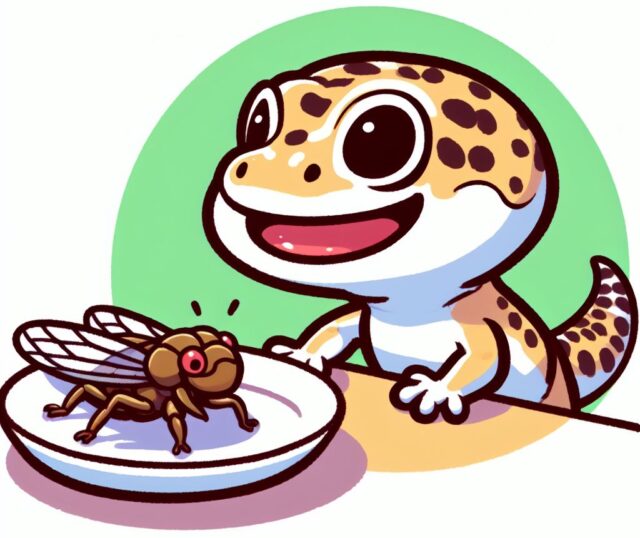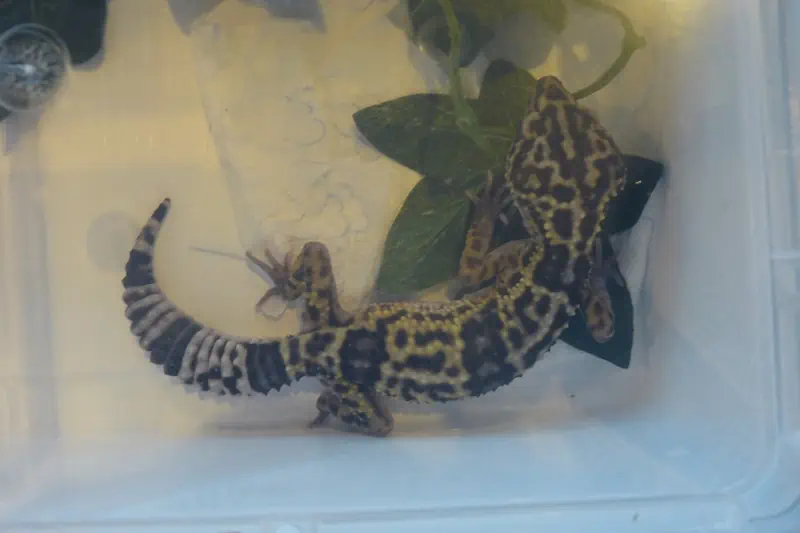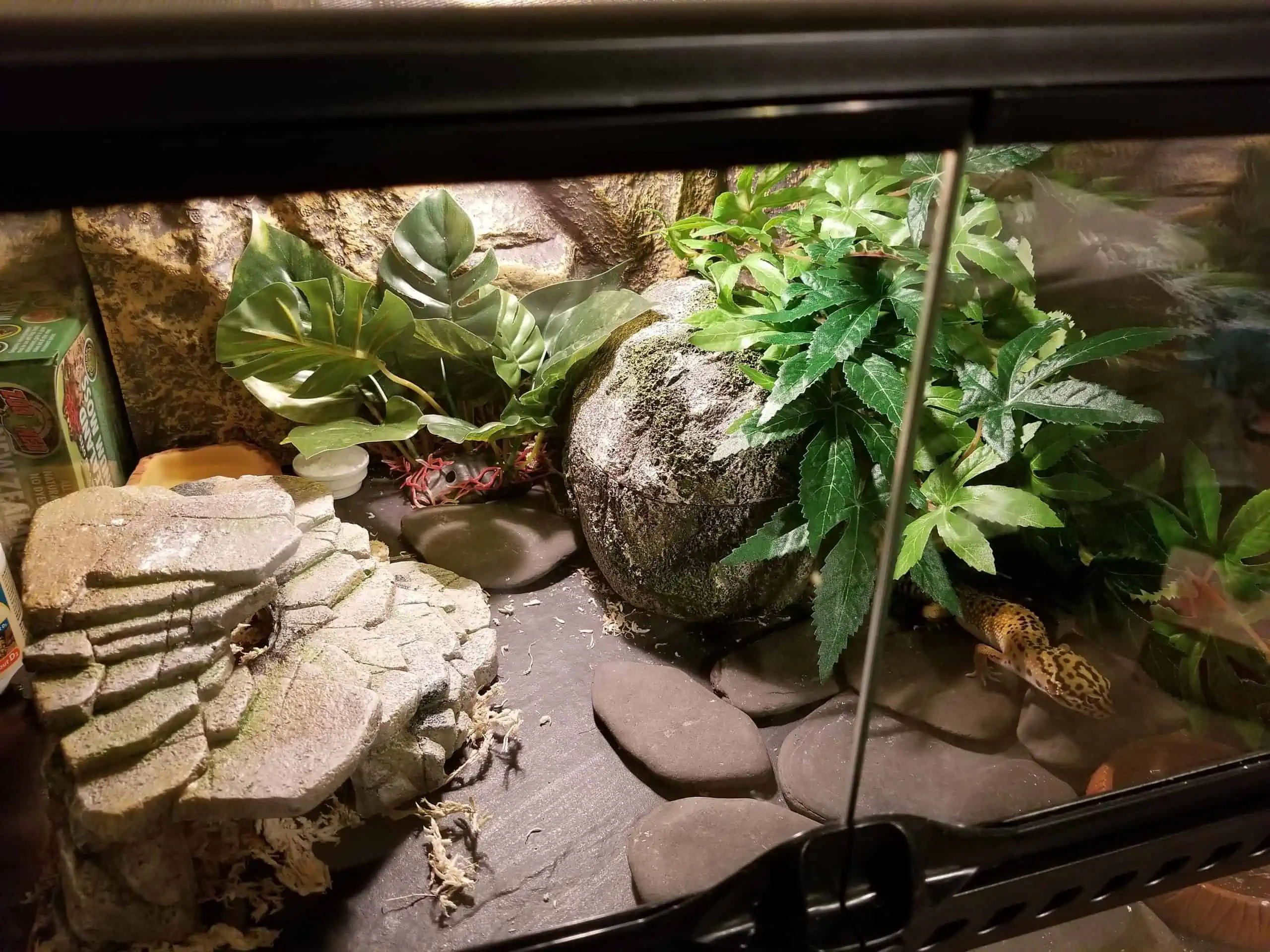Yes, leopard geckos can eat cicadas. However, like many things in life, it’s not quite that simple. While these insects can serve as a crunchy treat for our little reptilian friends, it’s essential to be aware of the potential risks involved, especially when considering wild cicadas. Just as we humans need to be cautious about where our food comes from, so too do leopard geckos. There’s a balance between the nutritional benefits and the potential dangers.
Dietary Benefits: Cicadas offer a rich protein source for leopard geckos, with some species boasting up to 50% protein content.
Digestive Concerns: The tough exoskeleton of cicadas can lead to impaction in leopard geckos. Ensure the cicadas are an appropriate size to avoid choking hazards.
Wild Cicadas Risks: Before feeding wild cicadas, consider the dangers of insecticides and potential chemical poisoning. Monitor your gecko for symptoms like lethargy and loss of appetite.
Supervised Feedings: Always supervise feedings to mitigate choking hazards, especially when introducing new or larger prey like cicadas.
Can Leopard Geckos Eat Cicadas?
When feeding your leopard gecko, it’s crucial to be aware of what they can and can’t eat. Cicadas might seem like a tasty option, but they come with their own set of potential risks for your gecko.
First, let’s talk about the concept of impaction in leopard geckos. Impaction is when something gets stuck in the digestive tract, preventing normal digestion. Cicadas, with their tough exoskeletons, can sometimes be difficult for leopard geckos to digest properly. This can lead to impaction, causing discomfort or even severe health issues for your pet.
Secondly, there’s the risk of choking. Cicadas can be quite chunky, and not all of them are suitably sized for every leopard gecko. If a gecko tries to swallow a cicada that’s too big, it can easily choke. Just like with humans, choking is a genuine and immediate concern that can be life-threatening.
Nutrients From Cicadas That Are Good For Leos
Now, let’s delve into the nutritional side of things. Cicadas aren’t just crunchy treats; they pack quite a nutritional punch. When thinking about feeding leopard gecko cicadas, it’s vital to consider the benefits they bring to the table.
First and foremost, cicadas are a powerhouse of protein. Believe it or not, some species of cicadas contain up to a whopping 50% protein! For those who might not know, protein is a building block of life. It’s involved in muscle growth, repair, and overall body function.
For leopard geckos, protein isn’t just beneficial; it’s essential. These little reptiles need a consistent protein source to thrive and remain healthy. So, in terms of protein content, cicadas could be a valuable addition to their diet of insects.
However, as with any food source, moderation is key. While cicadas do offer these fantastic nutrients, always balance them out with other food items to ensure a varied and complete diet for your gecko.
What Are The Potential Risks?
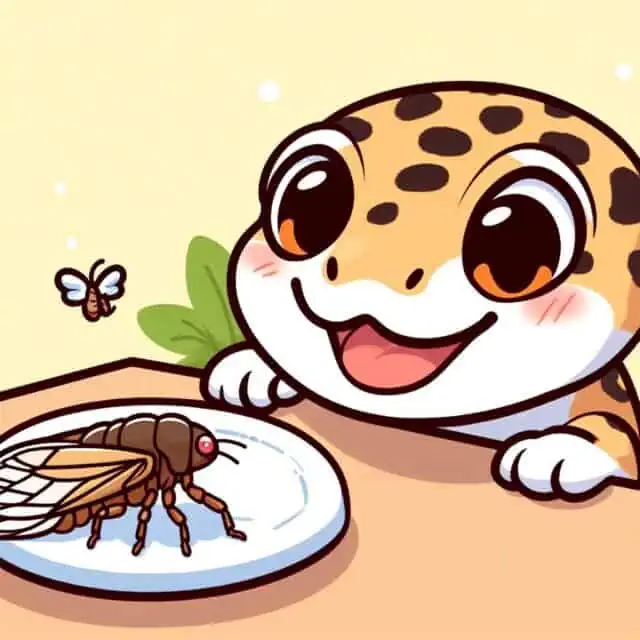
While cicadas can be a nutritious treat for leopard geckos, they are not without their drawbacks. Before diving headfirst into offering these insects to your pet, it’s wise to be well-informed about the associated risks.
Impaction
One of the main concerns when feeding leopard geckos cicadas is the risk of impaction. Impaction, in simple terms, is a blockage in the digestive tract. It’s akin to a severe form of constipation, but with potentially graver consequences.
The root of this concern lies in the cicada’s tough exoskeleton. This external shell is made of a material called chitin. While it serves as armor for the cicada, it’s not the easiest thing for a leopard gecko to digest. When a gecko consumes whole cicadas with these intact exoskeletons, it can sometimes struggle to break down and pass this hard material.
Over time, or with frequent feeding of such hard-to-digest items, these exoskeleton fragments can accumulate in the gecko’s digestive tract, leading to impaction. This can cause discomfort, health complications, and in severe cases, can even be life-threatening.
Choking
Another significant concern, separate from impaction, is the risk of choking. We might often think of choking as a risk associated with humans or larger animals, but smaller creatures like the leopard gecko are not immune to this danger, especially when faced with prey of considerable size.
Cicadas, by nature, are relatively large insects. Their size can vary, but many are sizable enough to pose a challenge for a leopard gecko to swallow. While geckos have an impressive ability to consume prey that might seem too big at first glance, there are limits to what they can handle. If a cicada is too large, or if the gecko is overly eager and doesn’t chew it sufficiently, it can become lodged in their throat.
This can lead to immediate distress for the gecko. Choking not only poses an immediate threat to their wellbeing but can also cause long-term damage if not addressed promptly.
Can you feed your leopard gecko wild cicadas?
Feeding your leopard gecko a varied diet is essential for its health and well-being. While cicadas can be an enticing addition, the question arises: is it safe to feed your gecko wild cicadas? There’s more to consider than just the insect itself.
Wild cicadas, though a natural part of many ecosystems, come with their own set of challenges when introduced as a food source. One of the primary potential risks is their exposure to insecticides. Many areas, especially urban or agricultural ones, might use pesticides to control insect populations. These chemicals can remain on the cicadas and, when consumed, introduce toxins into your leopard gecko’s system.
Chemical poisoning is a grave concern. Symptoms to watch out for include lethargy, loss of appetite, unusual droppings, and labored breathing. These can be early signs that your gecko has ingested harmful substances and requires immediate veterinary attention.
Apart from chemicals, wild cicadas might also be carriers of parasites or pathogens not usually found in captive-bred feed insects. These can introduce new diseases to your pet, posing additional health threats.
In conclusion, while the idea of feeding your leopard gecko ticks or wild cicadas might seem natural and cost-effective, it’s vital to weigh the benefits against the inherent risks. Still, it’s better than giving them blueberries or other foods that they’re completely unprepared for.

